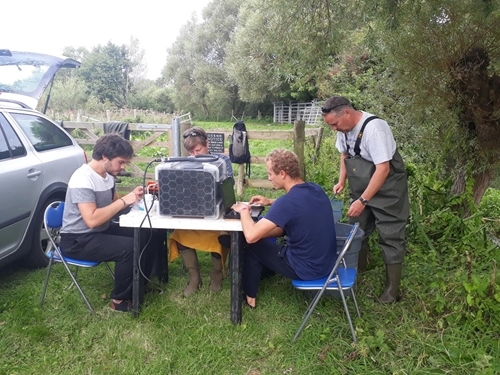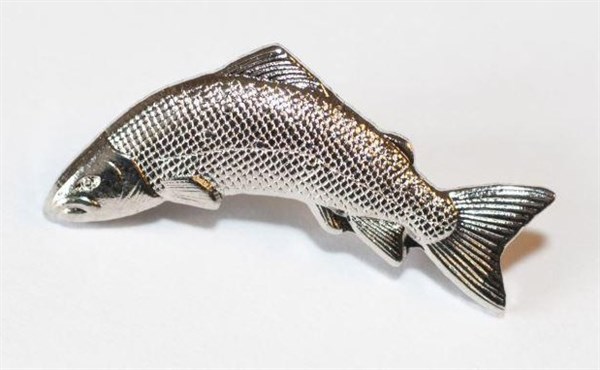
Sarah Bayley Slater looks at the students and scientists working together to protect wild salmonids
The GWCT has been monitoring Atlantic salmon numbers in the River Frome, at our Salmon & Trout Research Centre since 2009. This has created one of the most comprehensive records of salmon movement and survival in England and Wales.
In 2017 we launched the seven-year ‘Salmonid Management Round the Channel’ (SAMARCH) project which is part-funded by the EU’s Interreg VA Channel Programme. Led by the GWCT, it involves 10 project partners in the UK and France who are working together to provide new scientific evidence to inform the management of salmon and sea trout in the rivers, estuaries and coastal waters on the French and English sides of the Channel.
In addition to the collection of scientific information, an important element of the project is to engage with stakeholders. This includes providing opportunities for undergraduate, MSc and PhD students to gain experience in salmon and sea trout conservation work, research and fisheries management. The training delivered through the project aims to highlight the importance of managing and safeguarding the aquatic environments required to sustain populations of wild salmon and sea trout.
These training opportunities have been hugely successful with students. Since the project started it has provided training opportunities for over 60 undergraduate, 20 MSc and two PhD students in England and France. Fifty-five students from Bournemouth University, and a further 25 students from academic institutions in England and France, have worked alongside our fisheries scientists to assist with electric-fishing and PIT-tag salmon and trout parr, helping to collect scientific information about the salmonid populations in River Frome and their migration patterns in the English Channel.
This chance to gain real-life scientific experience has been particularly important to students during the Covid-19 pandemic, when face-to-face teaching and opportunities for work experience were severely limited. Implementing covid-safe measures and working outdoors has meant that the students involved in SAMARCH have been gaining valuable work experience while helping to collect new evidence to inform the management and conservation of salmonids. It has been a ‘win-win’ situation for both the students and the scientists.

Get your GWCT Fisheries Badge for £9.99
£5 from the sale of each badge goes directly to our fisheries research centre in Dorset
You can help us understand what's driving the decline in Atlantic Salmon numbers by buying one of our salmon pewter pin badges. The badge measures approx. 3cm.
View Badge >
or
Buy Now - £9.99 >
100% Secure. All Credit & Debit cards, PayPal, Apple Pay and Google Pay accepted.
